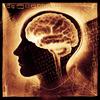Amanda Aronczyk appears in the following:
The Handshake Experiment
Wednesday, May 03, 2017
Neil deGrasse Tyson and microbiome science help answer this question: when we touch greatness, how much of it stays with us?
Funky Hand Jive
Wednesday, April 26, 2017
Neil Degrasse Tyson and some new microbiome science help answer the question: when we touch greatness how much of it stays with us?
Flu-dunnit?
Wednesday, March 22, 2017
If you’ve ever worried about catching a cold from a co-worker who came into work when he (or she) should’ve taken a sick day, then this episode is for you.
American Icons: Monticello
Thursday, March 09, 2017
This is the home of America’s aspirations and its deepest contradictions.
The Crowd Made You Do It
Wednesday, January 25, 2017
After many people gathered in Washington for inauguration and the Women’s March, Only Human looks at what happens to us as individuals when we become part of a crowd.
Measuring Election Anxiety With Saliva
Monday, November 07, 2016
Who is more stressed, Democrats or Republicans? WNYC's Only Human Podcast tries to find out.
What Your Saliva Says About Stress and How You'll Vote
Monday, November 07, 2016
How is your anxiety affecting decision-making and the election? The team at Only Human investigates.
Please Spit in This Tube: An Election Experiment
Friday, November 04, 2016
This election certainly feels stressful. But we wanted to find out what this election is actually doing to us — biologically. So we teamed up with scientists to run our own experiment.
Episode 7: This Is Your Brain on Politics
Thursday, November 03, 2016
With the 2016 election taking every twist and turn on its way to November 8th, WNYC and The Nation explore how our minds and bodies are responding.
Me and My Therapist
Tuesday, August 09, 2016
Six short stories about how the relationship between patients and therapists can get... complicated.
Yes, Simba, Chimps Laugh
Tuesday, July 19, 2016
Is laughter really the best medicine? We go to a laughter yoga class, an improv workshop for doctors and nurses, and talk to brain scientists about why humans laugh in the first place.
Take Two Laughs and Call Me in the Morning
Thursday, July 14, 2016
Doctors and nurses use gallows humor to get through the day. But when is laughter in medicine OK, and when does it cross the line?
What's 'TMI' About Mental Illness
Thursday, June 02, 2016
Do millennials talk about mental illness differently than their parents?
A Med Student Decides To Be Upfront About Her Mental Issues
Wednesday, June 01, 2016
When Giselle decided to apply to medical school, people told her to hide the fact that she has struggled with anxiety, depression and a suicide attempt. She thinks it will help her be a better doctor.
Part 2: Be the Doctor Your Mom Wanted You to Marry
Tuesday, May 31, 2016
In part two of our mental health and generation gaps series we talk to Giselle, a doctor-in-training who wants her field to be more open about mental health.
A Deaf Composer Holds Out for Science (Rebroadcast)
Tuesday, May 03, 2016
Jay is a musician who has been losing his hearing over the past several decades. Now he must decide whether participating in an experimental treatment is worth the potential risks.
Doctor Stories: The Patient I’ll Never Forget
Tuesday, April 12, 2016
Doctors listen to stories from patients all the time. But they've got plenty of their own.
In Our Words: Speaking While Autistic
Friday, February 26, 2016
People with autism tell us what it's like to communicate when you don't sound like everyone else.
When Opera Meets Autism
Tuesday, February 23, 2016
A neuropsychologist and opera singer teamed up to create a form of vocal training for people on the autism spectrum. What does it mean for the patients who have to change just to fit in?


















